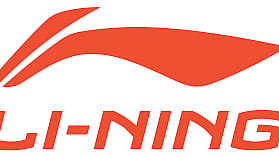New player works on mind game
ADVERTISEMENT

CHECK THE FINE PRINT on pretty much anything—from an iPhone to a fridge magnet— and chances are it was made in China. Yet, for many, Chinese brands are uncool. Sports goods maker Li-Ning is trying to build a premium brand like Adidas and Nike that consumers will aspire to. In March this year, Li-Ning entered India through Meerut-based Indo Rubber & Plastic Works, which distributes the brand across 550 outlets. Ram G. Malhotra, who heads Indo Rubber, says the first exclusive Li-Ning store will open in Bangalore next year.
But being a Chinese company in India isn’t easy. Harish Bijoor, chief executive of brand consultancy HB Consults, says, “Branding is all in the mind. And in our minds, China is a supplier of cheap goods [rather] than great brands.”
Li-Ning plans to tackle this by establishing itself as a serious sports goods brand first, and then branching out into sports lifestyle apparel.
Li-Ning is big in China, with more than 7,303 stores and a revenue of $1.41 billion in FY11. Olympic gold medallist gymnast Li Ning set up the company in 1990.
Li-Ning has begun its India journey with badminton, one of its strongest portfolios (its range spans basketballs to running shoes). World No. 1 Lin Dan of China endorses the brand and Chinese players dominate the sport globally.
January 2026
Netflix, which has been in India for a decade, has successfully struck a balance between high-class premium content and pricing that attracts a range of customers. Find out how the U.S. streaming giant evolved in India, plus an exclusive interview with CEO Ted Sarandos. Also read about the Best Investments for 2026, and how rising growth and easing inflation will come in handy for finance minister Nirmala Sitharaman as she prepares Budget 2026.
Badminton is growing fast in India. Consulting firm Technopak pegs India’s sports goods market at $1 billion (Rs 5,458 crore), growing at 35% to 40% annually. Malhotra says India’s badminton market has doubled in the past three years and is now close to Rs 150 crore. Li-Ning believes Yonex, with its huge market share, is its biggest competitor. Li-Ning has signed up Indian shuttlers Jwala Gutta and Ashwini Ponnappa, but star shuttler Saina Nehwal has gone with Yonex.
Li-Ning’s pricing is also aimed at overcoming the ‘cheap goods’ perception. Its lowest-priced racquet comes for Rs 2,500, whereas Yonex’s starts around Rs 1,000. Li-Ning claims it has an edge in quality that makes its products competitive even at a higher price.
E-mails to the company’s Beijing headquarters elicited a customary response emphasising on taking the brand global and improving quality.
According to London-based Trendwatching.com, which highlights trends for marketers, new age Chinese companies are fast learning the art of branding and Li-Ning is one. Its global profile has gained prominence following endorsement deals with NBA stars Shaquille O’Neal and Dwayne Wade, Olympic pole vault gold winner Yelena Isinbayeva, and former 100 m world record holder Asafa Powell.
